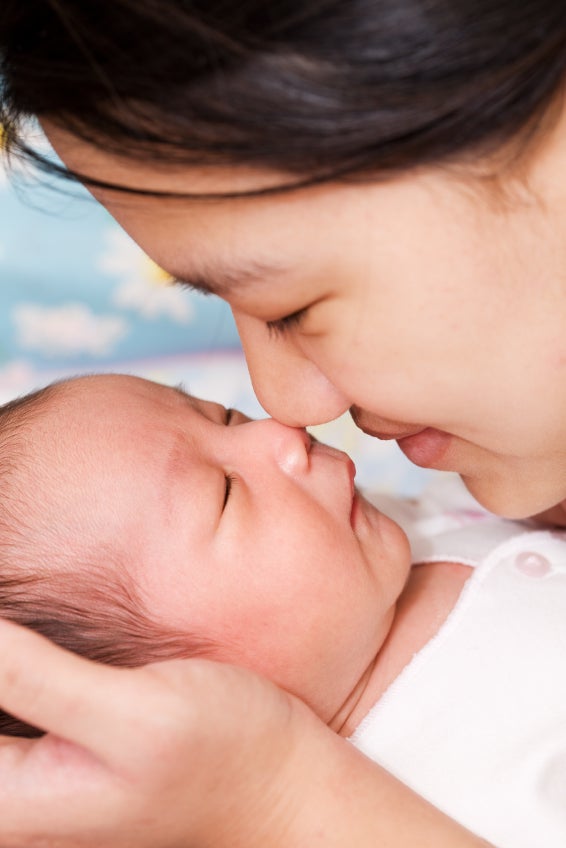For most parents, getting through the first 6 weeks with a newborn is one of the most physically and emotionally challenging experiences of their lives. Time seems to almost stand still as a cloud of distracted half-awareness descends over day-to-day routines. Around six to eight weeks, things change, at first almost imperceptibly and then with lightning speed. After those grueling early months, parents begin to see a unique person emerge from the mass of needy newborn reflexes. Their tiny babies begin to become much more predictable, social, and a lot more fun!
Social Development
For most babies, social smiles appear around 6 to 8 weeks of age. These smiles are all the more welcome because babies’ crying also peaks around the same time. Some 6-week-old babies may cry for 2 hours a day, often in short spurts with one longer spurt in the late afternoon. For more about why this happens, read our prior posts about crying and persistent crying. Fortunately, as babies get closer to 2 months of age, their crying tapers off and parents have a better idea about what to do to calm them. When they aren’t crying, babies are working harder than ever to interact with the adults around them, smiling, imitating, and vocalizing, whenever they can. Remember, social activity is hard work for babies. Watch for disengagement cues and slow down or stop interactions whenever they show signs that they need a break. Remember that babies can’t be specific about what they might need the break from, so if it isn’t obvious, pay attention to what might be going on around you that might be bothering the baby. As the erratic behavior common in the first 2 months starts to fade, babies’ unique temperament and likes and dislikes begin to emerge. Some babies love noise, lights, and active play while others can handle only a little stimulation at one time. Some babies seem to be quick to calm, while others take more time to relax.
Cognitive Development
By six to eight weeks, babies show clear signs that they can predict what will happen during feeding, social, and naptime routines. They will move their legs and arms and coo excitedly when they anticipate food or fun and turn or arch away when they know something not so fun is about to happen (like a diaper change for those who don’t like them). Babies more obviously recognize their favorite people and are less interested in strangers. They’ll enjoy looking quietly at objects and listening to noises for longer periods as they try to learn more about them.
Physical Development
Newborn reflexes start to fade as babies begin to gain more control over their bodies. Many babies will have an easier time moving their heads from side to side, picking up their heads when placed on their tummies, and moving their hands towards their mouths. Nearly all babies of this age will flail their arms and legs at people and objects that they want to play with. Reaching and grasping is right around the corner! With so many possibilities for movement, it is very important to never leave babies unattended in places that are not perfectly safe. Never leave a young baby on an adult bed, couch, or high surface. You won’t believe how far they can move, long before they can roll or crawl.
Part of the wonder of being a new parent is to watch your baby’s unique personality emerge and develop. After the first 6 to 8 weeks, babies begin to change so quickly that you’ll find that there is something new to share everyday.
